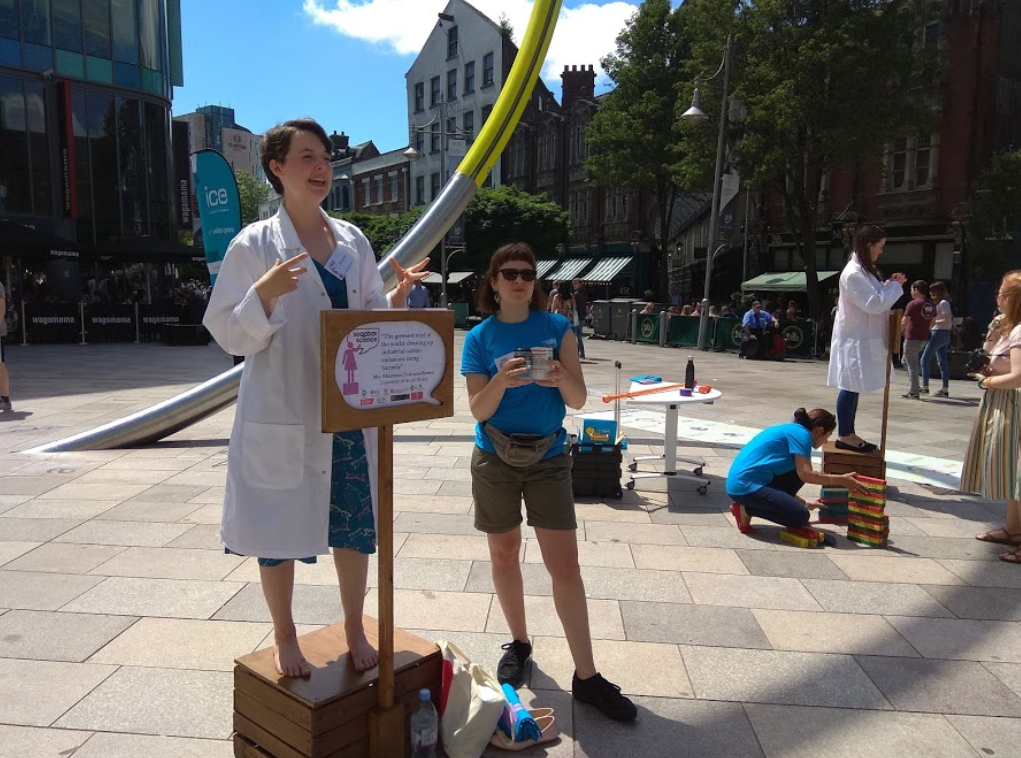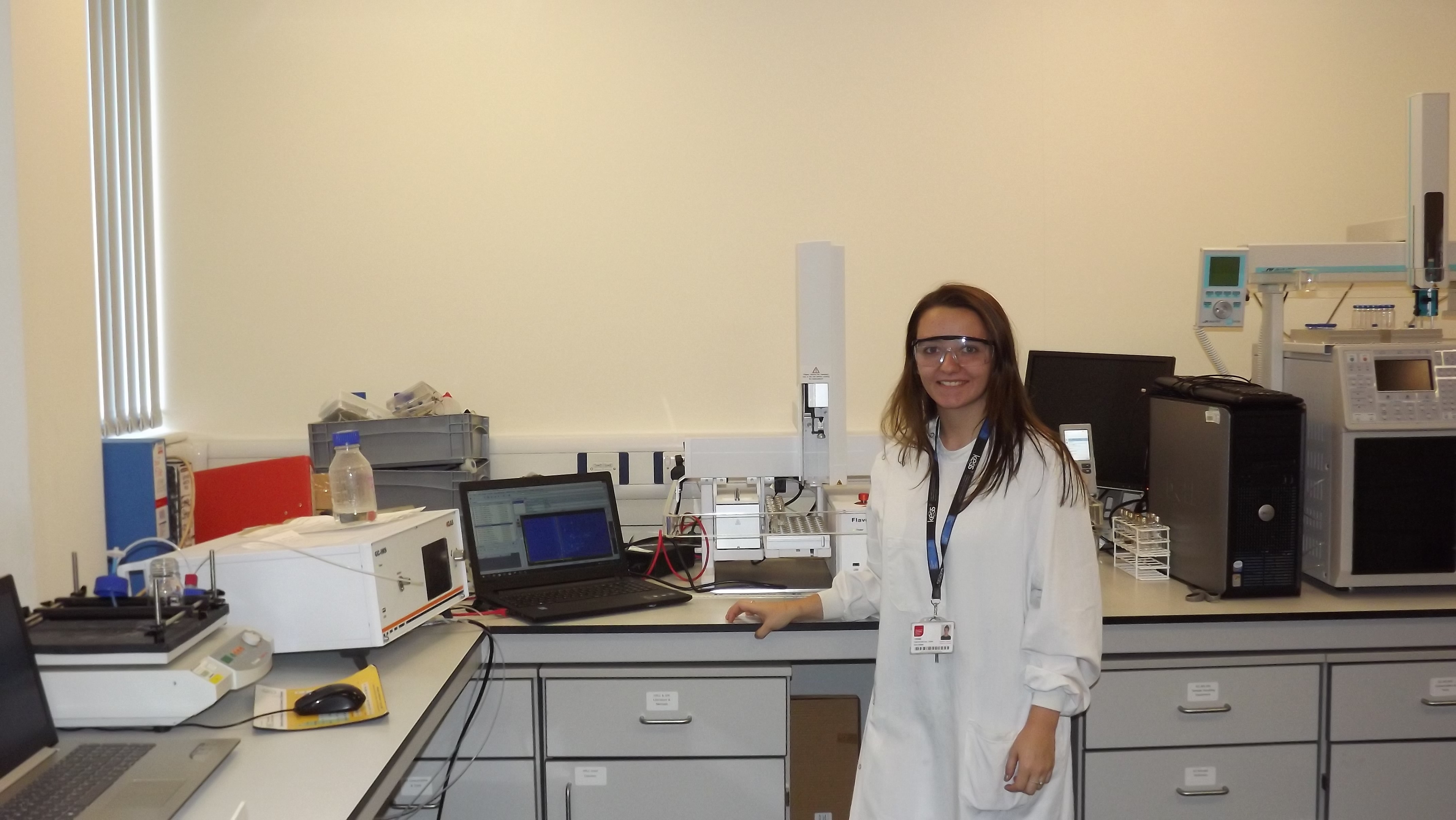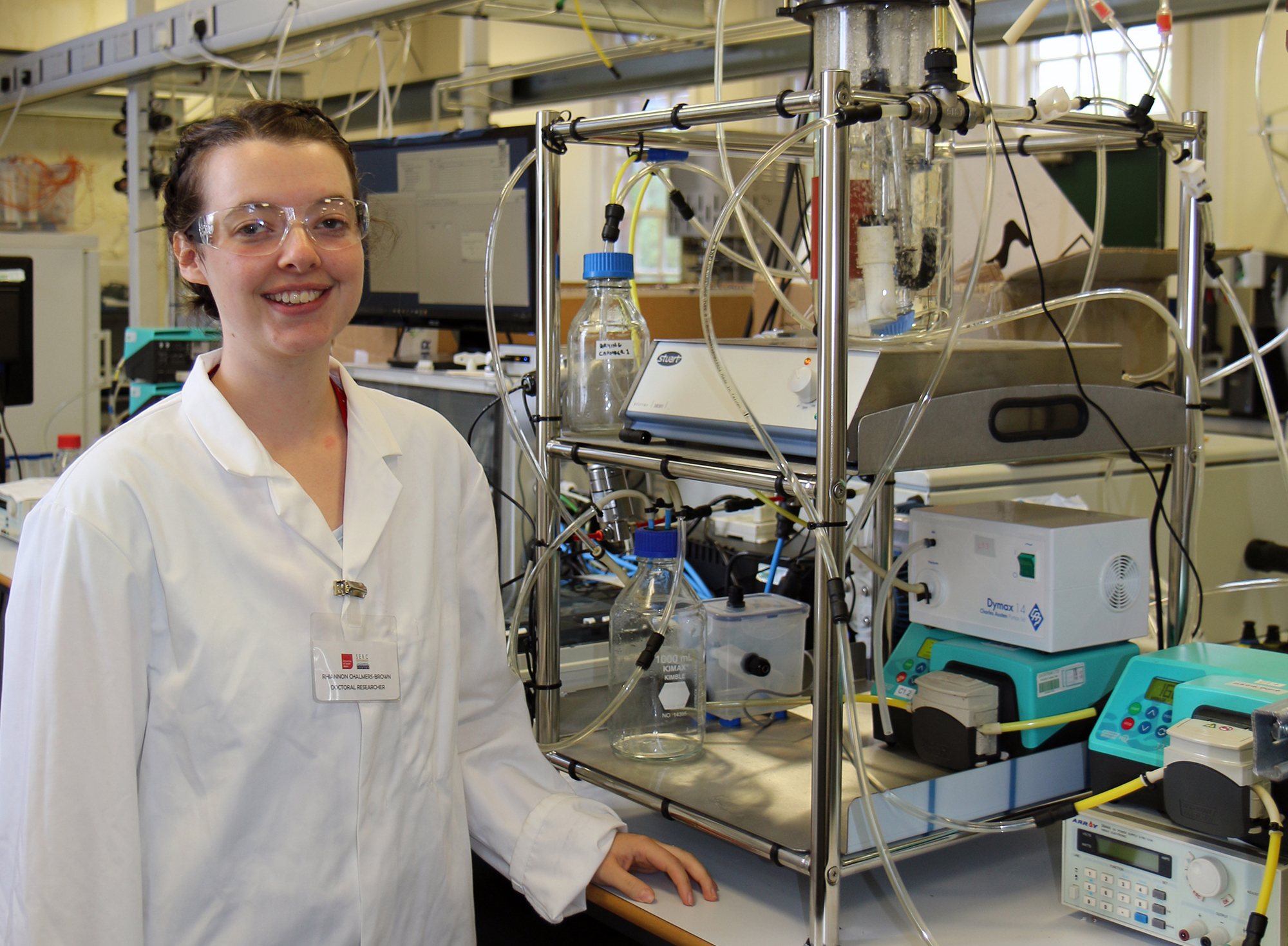DR RHIANNON CHALMERS-BROWN : Cynorthwyydd Ymchwil RICE – Dadansoddiad Bioprocess Carbon Isel Cwblheais fy ngradd israddedig mewn Cemeg ym Mhrifysgol De Cymru. Yna, cefais fy annog gan fy ngoruchwyliwr ymchwil, yr Athro Richard Dinsdale, i ymgeisio am ysgoloriaeth KESS 2 gan fod gen i ddiddordeb mawr mewn ynni adnewyddadwy a’r sector amgylcheddol yn gyffredinol. Credir… Darllen mwy »
Astudiaethau Achos: Cemeg
Datblygu technolegau cemegol a genomig newydd ar gyfer olrhain a sicrhau ansawdd olew llysiau bwytadwy a diwydiannol
Dyfarnwyd Kirstie Goggin ei PhD trwy Raglen KESS 2 (a ariennir gan Cronfa Gymdeithasol Ewrop) mewn amserlen anhygoel o 3 blynedd 4 mis. Hi yw y ferch cyntaf i dderbyn PhD drwy KESS 2 ym Mhrifysgol De Cymru. KIRSTIE GOGGIN SAFBWYNT MYFYRIWR Roedd fy PhD yn ymwneud â datblygu dulliau cemegol a genetig newydd i… Darllen mwy »
Gwyddonwyr Cymru yn helpu i gadw ein bwyd yn iach, yn ddiogel ac yn gynaliadwy
Mae llawer o’r bwyd yn y DU yn dod drwy gadwyni cyflenwi sy’n aml yn gymhleth ac yn cynnwys nifer o gynhyrchwyr a phroseswyr o bedwar ban byd. Yn anffodus, gall hyn arwain at arferion anghyfreithlon a/neu anfoesol oherwydd gall rhai cynhwysion gael eu halogi gan ddifwynwyr neu eu caffael o ffynonellau annymunol. Mae enghreifftiau… Darllen mwy »
Troi nwyon gwastraff yn gynnyrch adnewyddadwy
Mae Rhiannon Chalmers-Brown wedi dychwelyd i astudio ar gyfer ei Doethuriaeth ym Mhrifysgol De Cymru, ar ôl cael BSc mewn Cemeg yn y coleg hwnnw. Cafodd ei hannog gan ei goruchwyliwr ymchwil, Richard Dinsdale, i wneud cais am yr ysgoloriaeth KESS 2, gan fod ganddi ddiddordeb brwd mewn ynni adnewyddadwy a’r sector amgylcheddol yn gyffredinol…. Darllen mwy »
Datblygu system newydd o roi pro-gyffur quinon ar gyfer canser (Cyflwyniad)
(English) The chemotherapy agents which are in current use are highly toxic compounds and are also non selective meaning that in effect the patient is being medically “poisoned” in the hope that the cancer will die first. Prodrug technology allows for the selective deployment of highly toxic drugs into cancer cells, whilst healthy cells are left relatively unaffected.
Darllen mwy »











